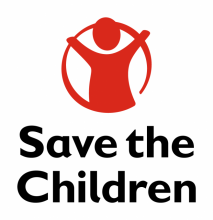DEATH OF TWO PEOPLE, INCLUDING A CHILD, IN YAMMOUNEH FIRE: SAVE THE CHILDREN’S STATEMENT

DEATH OF TWO PEOPLE, INCLUDING A CHILD, IN YAMMOUNEH FIRE: SAVE THE CHILDREN’S STATEMENT
Save the Children is deeply saddened by the news of a fire that engulfed an informal settlement for Syrian refugees in the Baalbek village of Yammouneh on Monday, 4 December, killing two people, including a seven-year-old child.
The tragedy is another stark reminder of the avoidable loss of lives that result from such fire incidents, mainly due to restrictions on the use of less flammable materials in informal settlements, and absence of robust fire prevention plans across refugee and host communities.
In 2017 alone, there were 14 recorded fire-related deaths in informal settlements, and 13 of these were children.
Save the Children has been spearheading national efforts in collaboration with the Ministry of Social Affairs, DFID, and UNHCR, to increase awareness and upgrade responses to and prevention of deadly blazes, by equipping refugee settlements with fire extinguishers and training thousands of people on their use.
There remains, however, a clear gap in the efficiency of the fire risk mitigation mechanisms implemented. That is why Save the Children has been calling for the active implementation of national guidelines that outline the hazardous risks of fires and how to prevent them.
Save the Children’s Country Director Allison Zelkowitz said:
“We are heartbroken to learn of the death of two people, including a young boy, in the fire that broke out in Yammouneh yesterday. Our thoughts go out to the families of the victims at this difficult time and we remain prepared to offer any support needed.
“Save the Children will continue to work with local communities to establish ways to respond to fires and mitigate their risk over the long term. There is a low level of fire safety knowledge among refugee populations in Lebanon. Unfortunately, further fires remain likely under the present conditions, and children are particularly at risk. It is time that a solid strategy is implemented in order to spare lives.”
ENDS-
 Lebanon
Lebanon